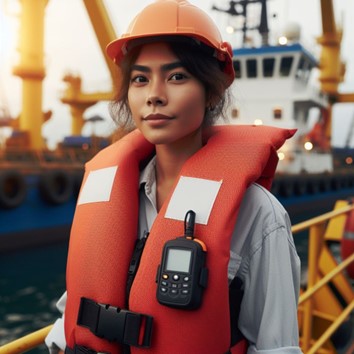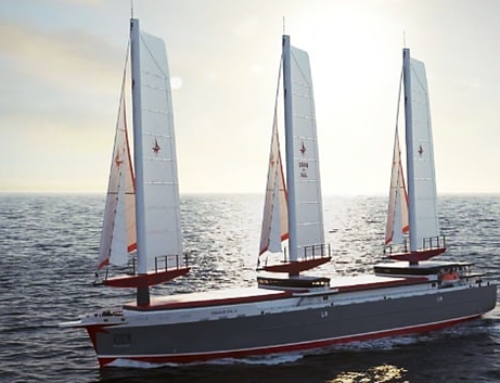Personal Locator Devices: A Lifeline for Maritime Workers
 In a significant move to support safety at sea, the National Transportation Safety Board (NTSB) has released a safety alert that marks a pivotal moment for maritime operations. The alert urges vessel owners and operators to equip each crew member with a personal locator device, a step that could dramatically improve the chances of rescue during maritime emergencies. This recommendation comes in the wake of investigations into several maritime incidents, revealing the potential life-saving benefits of such technology.
In a significant move to support safety at sea, the National Transportation Safety Board (NTSB) has released a safety alert that marks a pivotal moment for maritime operations. The alert urges vessel owners and operators to equip each crew member with a personal locator device, a step that could dramatically improve the chances of rescue during maritime emergencies. This recommendation comes in the wake of investigations into several maritime incidents, revealing the potential life-saving benefits of such technology.
Personal locator devices (PLDs), including beacons and satellite emergency notification devices, can pinpoint a person’s location with remarkable accuracy—approximately 300 feet—thereby significantly enhancing the efficiency of search and rescue operations. The ease with which these devices alert search and rescue teams can mean the difference between life and death in the unforgiving maritime environment.
This call to action is rooted in hard-learned lessons from tragic events. Notably, the investigation into the 2015 sinking of the American cargo ship El Faro, which resulted in the loss of all 33 crew members, highlighted the need for these devices The report suggested that Personal Locator Beacons (PLBs) could have notably improved the chances of initial rescue efforts. The discovery of a crew member’s remains in an immersion suit three days after the sinking underscored the potential impact of such devices in facilitating quicker rescue operations.
Further investigations into the sinkings of the F/V Scandies Rose in 2019 and the F/V Emmy Rose in 2020, as well as the fatal capsizing of the liftboat Seacor Power in the Gulf of Mexico, have reinforced the NTSB’s stance. The collective loss of life in these incidents is a stark reminder of the risks faced by seamen and the urgent need for enhanced safety measures

Exemplar personal locator beacon (left) and satellite emergency notification device (center), and a personal locator beacon attached to a lifejacket (right). (Source: Bluewatersailing.com (left), Powerandmotoryacht.com (center), and Varen (right))
Vessel owners and operators are now advised to not only equip their crew with the best type of personal locator device, but also to ensure that each device is registered with the appropriate organization. These new measures help develop and maintain a “culture of safety”, prioritizing the well-being of those who brave the seas for their livelihoods and the economic benefit of all.
Though many maritime professionals work in an unforgiving environment, where the line between survival and tragedy can be perilously thin, personal locator devices represent a critical lifeline. The implementation of this safety measure helps reinforce the value of human life, and encourages the relentless pursuit of safety in one of the world’s most challenging professions.
We at the Herd Law Firm are proud to fight for maritime workers and passengers in all types of personal injury claims. We never waver in our commitment to help these maritime workers and their families when they are killed or injured.
February 9, 2024
Read the NTSB alert here.
Image Source: NTSB










